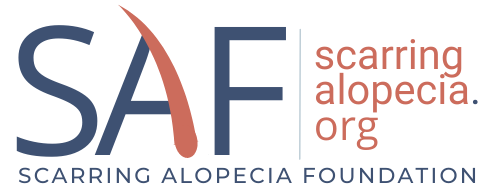Folliculitis decalvans is an uncommon scarring alopecia. The cause is not entirely known although it is often associated with the presence of bacteria such as Staphylococcus aureus. Patients experience itching, burning and tenderness in the scalp and often have pustules. The hair loss that the patients experience is often permanent.
The mainstays of treatment to date are oral and topical antibiotics to eradicate the Staphylococcus aureus as well as treatments such as oral isotretinoin. A variety of other treatments have been reported with limited success. Fat transplantation involves the isolation of fat stem cells by liposuction type procedure form the thigh or abdomen. These procedures are not well established yet and have little in the way of good evidence. Some countries, including Canada, have banned these procedures altogether in order to protect the public until more evidence is available. Canadian physicians and other specialists face the possibility of losing their licenses were the to participate in these procedures. But the procedure continue in other countries and are flourishing – even without good evidence. I continue to follow the data and evidence on these procedures for hair growth in various types of hair loss.
I was interested in a 2018 paper citing use of autologous fat transplantation as a source of stem cell therapy for folliculitis decalvans. The patient in the study underwent two session of adipose transplantation 5 months apart. After treatments it was noted that the patient had no new pustules and no longer had pain or burning sensation in the affected area. There was some hair regrowth noted at the periphery of the area.
Conclusions
This is an interesting and potentially promising study. Many studies in scarring alopecia suffer greatly from lack of long term follow up. Folliculitis decalvans for example can undergo periods of relative quiet followed by increased activity. It is essential to know if this patient for example maintains a good response after 1, 2,3 and 4 years. In addition. a lack of pustules and reduction in symptoms is a very good sign but what matters most is the appearance of the scalp at various intervals following treatment. Nevertheless, this is an interesting paper and likely will fuel additional studies of these therapies in scarring alopecia.
Patients should be aware that these therapies for folliculitis decalvans (and other types of hair loss) are experimental at best and likely do not provide the same degree of benefits as do standard therapies. They do however offer a new means of treatment and provided these prove safe in the long run, a novel means of harvesting one’s own stem cells as anti-inflammatory and hair growth promoting agents.
REFERENCE
Tedesco M. Adipose tissue transplant in recurrent folliculitis decalvans. Int J Immunopathol Pharmacol. 2018 Mar-Dec.
Article orginally posted at donovanmedical.com
For more information about cicatricial alopecia, visit carfintl.org
